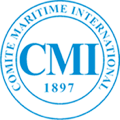Getting to Know your EXCO: Eduardo Albors
Eduardo Albors has kindly contributed a piece to help us get to know him better.
Who is Eduardo Albors, and what drives his passion for maritime law?
My name is Eduardo Albors. I am from Valencia, a city in the shores of the Mediterranean. In Valencia I studied my Bachelors Degree at the Faculty of Law for five years, specialising in private law. My interest in maritime law came from my family, as my father was a lawyer in maritime matters, and I used to have long conversations with him on interesting matters. Also, my paternal grandfather had a shipping agency in the port of Valencia.
In the fourth year of my degree we studied maritime law, but in a limited way. Therefore, when I finished my degree in Valencia, I went to Madrid to attend a specialised course in maritime law organised by the Faculty of Law of the Complutense University (School of Legal Practice).
What was your first job as a lawyer, and how did you come into contact with the CMI?
I started practicing law in 1979, in Valencia. But I quickly moved to Madrid as I was hired by a leading law firm in Spain specialising in maritime law. During the first years I combined my work in the office with my PhD studies at the Universidad Autónoma de Madrid. My first experience with the CMI took place in 1984 when I participated in a working group for the elaboration of the draft of the Convention on Arrest of Ships, which was approved at the Lisbon Conference in 1985. At that Conference, moreover, a declaration was signed, known as the Lisbon Declaration, which was the origin of the creation of the current Ibero-American Institute of Maritime Law, which was founded in Seville in 1987, of which I am a founding member. In the 1990s I was appointed a Titulary Member of the CMI. Since Dublin (2013) I have attended all annual CMI events. I am currently a member of several working groups (SC Rotterdam Rules; IWG Judicial Sale of Ships; IWG Collisions, and IWG Unified interpretation).
How has teaching played a role in your career?
During my career I have combined the practice of law with teaching. I have taught maritime law at the European Institute of Maritime Studies and at the Spanish Maritime Institute, for postgraduate studies, and also at the Escuela de Marina Civil in Barcelona, lecturing to postgraduate students on maritime transport and limitation of liability. I have always enjoyed teaching. In fact, at the firm we have been awarding scholarships to postgraduate students in maritime law for many years.
What are some of your other notable achievements?
In 1990 I founded my own law firm together with other partners. Since then I have been dedicating my professional activity to the firm with a preference for maritime and insurance law, intervening in many interesting matters. I was directly involved in the drafting process of the Spanish Maritime Navigation Law of 2014 and in recent years I have been advisor to the Spanish Permanent Representation to the International Maritime Organization, having been involved since the 106th session of the Legal Committee until today. I was also a member of the Spanish Delegation to the Geneva Diplomatic Conference (March 1999) which adopted the Ship Arrest Convention, as well as of the Spanish Delegation to UNCITRAL (Group VI) for the adoption of the Beijing Convention on the International Effects of the Judicial Sale of Ships. In 2012 I was appointed Vice-President of the Spanish Maritime Law Association and in 2016 I was appointed President, until 2022 when my term on the office ended.
What has your experience as a CMI EXCO Member been like?
I was appointed CMI Councillor in Mexico in 2019 and renewed in Antwerp (2022). It has been an amazing experience. The first year was tough because of the pandemic, and I have to thank Chris Davis, then President, and all the Council members very much for all the efforts to maintain institutional normality. Unfortunately we had to change the agenda of events, until we got back to normality in Antwerp, celebrating the 125th anniversary of the founding of the CMI. From my position as Councillor I have tried to maintain strong links with my Association and to promote its presence in the CMI, which I understand has been achieved as the Spanish participation has increased significantly in recent years; I have also tried to liaise with the Latin American associations. Finally, I have to highlight the great work done by the CMI in the elaboration of the Beijing Convention, led by our President Ann Fenech. It has been an incredible piece of work. We have to thank her and all the members of the IWG. We are now working in Spain to be able to hold the 2027 CMI event in Valencia.

